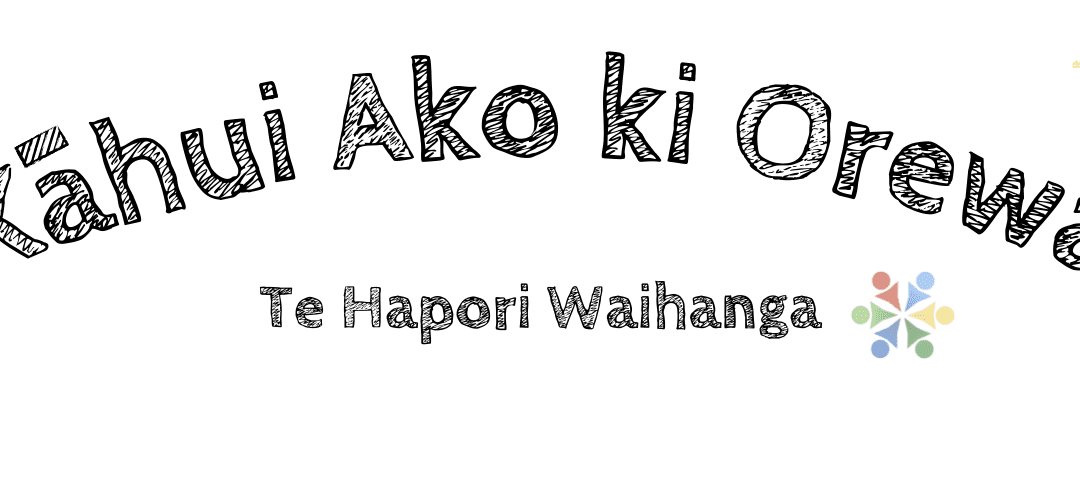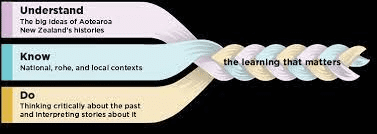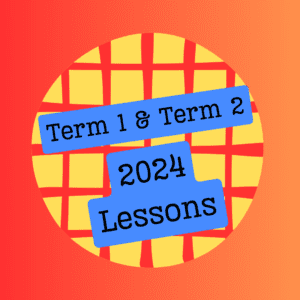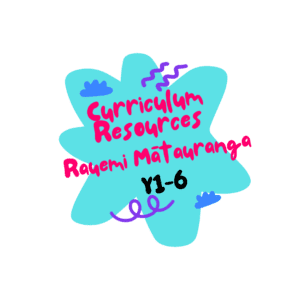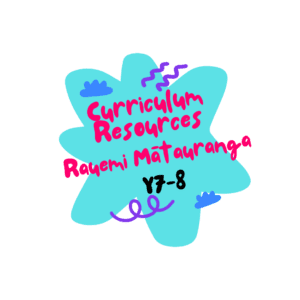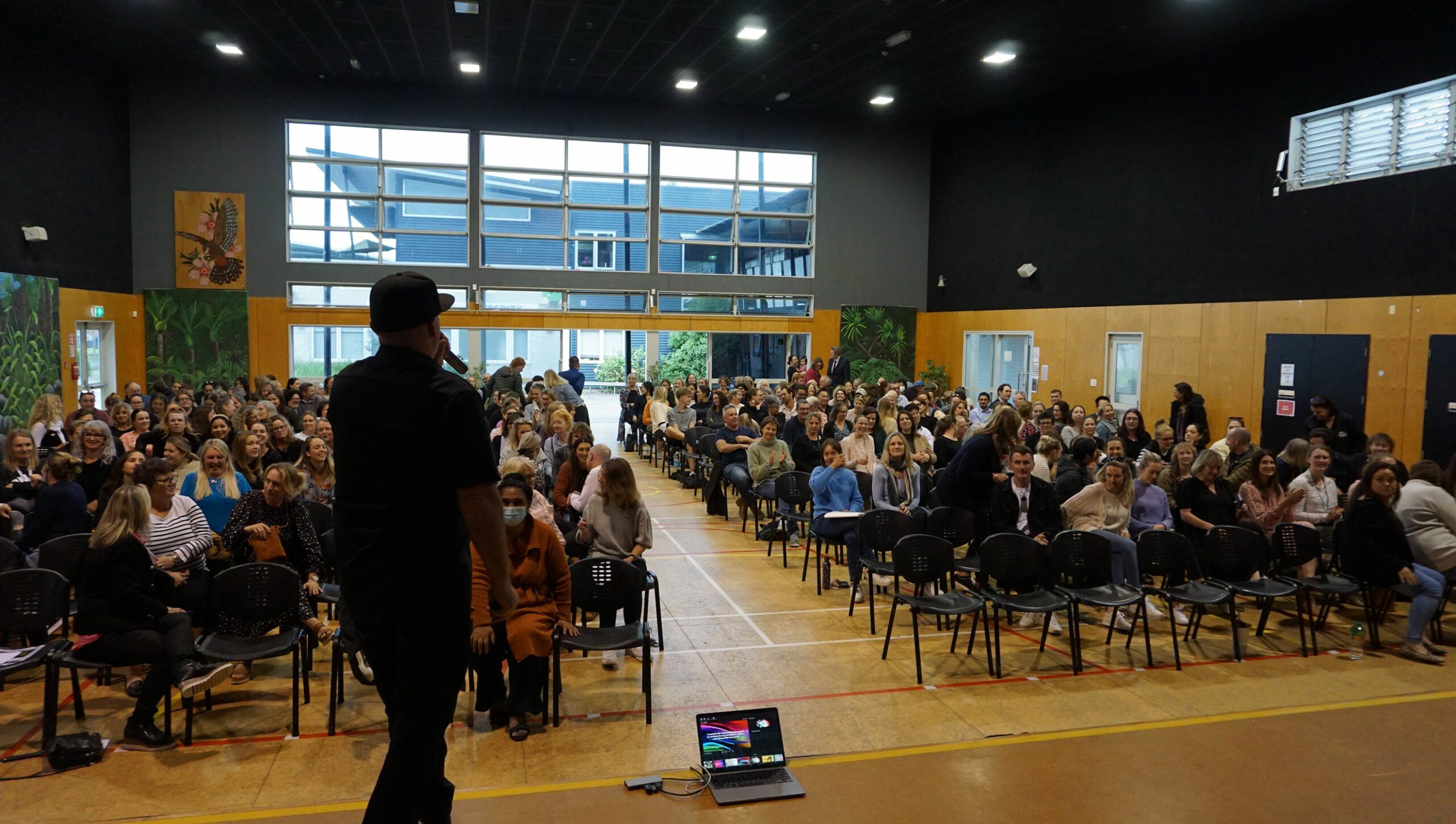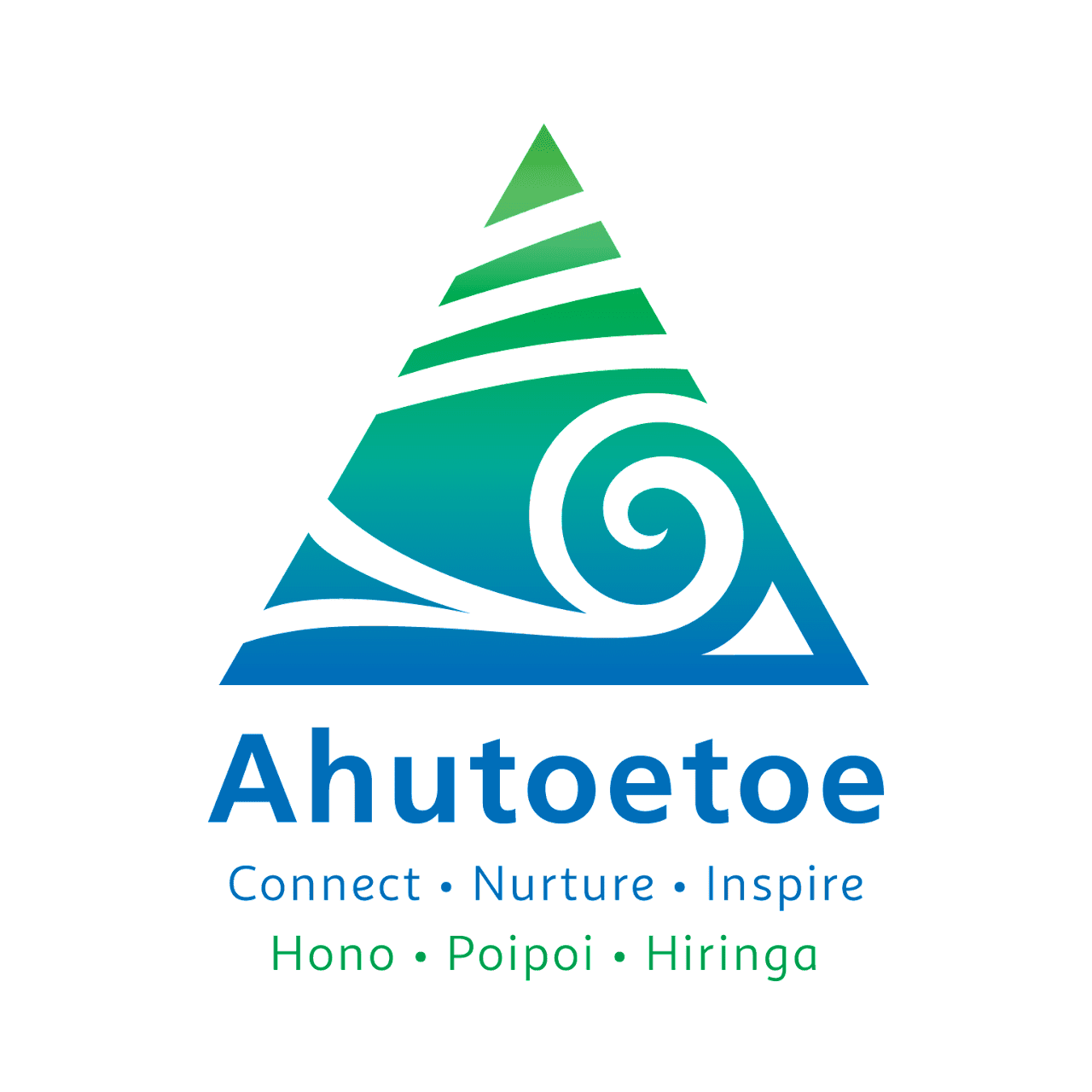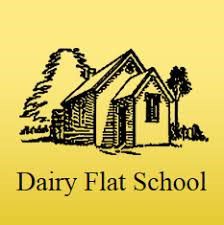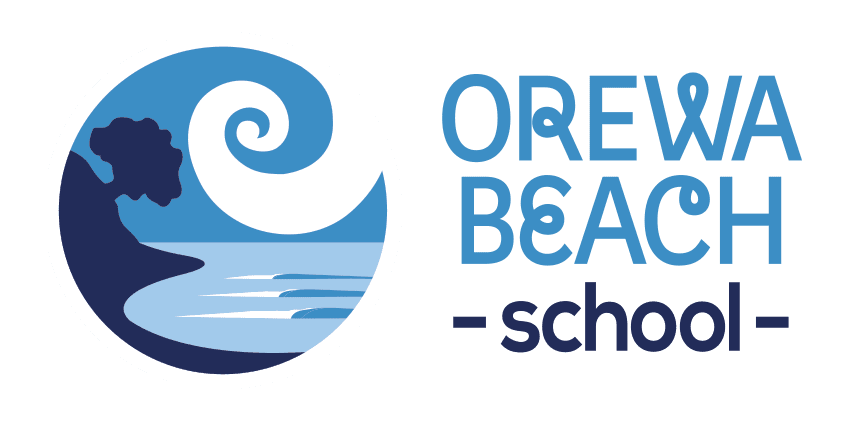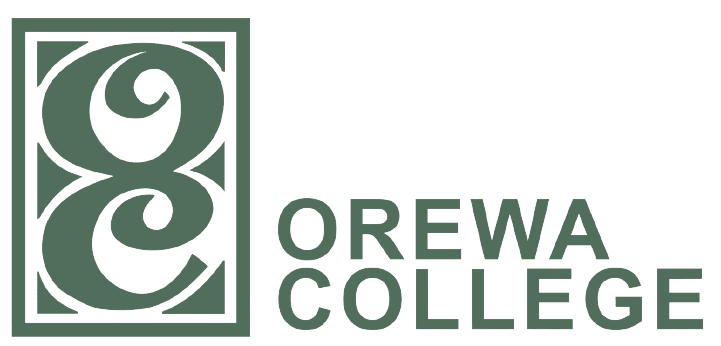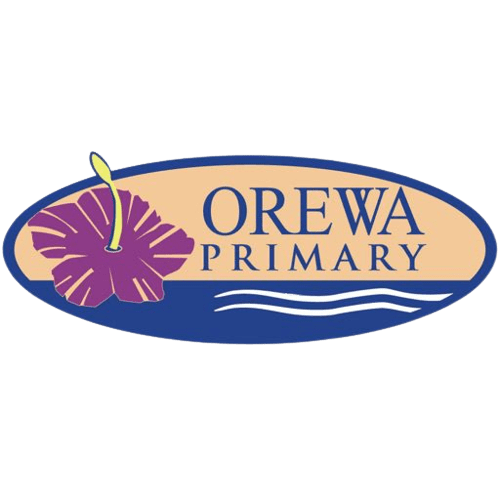Competition – Each week we will have a competition. One lucky winner will receive a $20 Millie’s Coffee voucher! It’s simple, just email your answer to [email protected]
This Week’s Question/Pātai o te Wiki: What does the kīwaha/colloquium “Oa te maaka” translate to?
Have something to share? Get in contact with one of our Across School Leaders – we would love to hear from you!
[email protected] Te ao Māori
[email protected] Hauora
[email protected] Future Ready
[email protected] 21st Century Learning
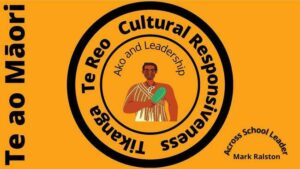
Pōhiri Marae

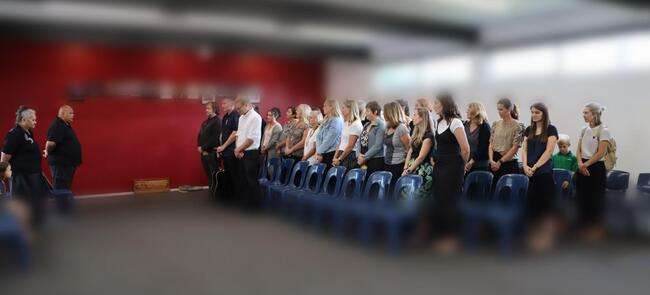
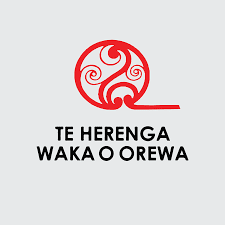
Yesterday we held our now annual pōhiri for kaimahi/staff from our Kāhui who have not yet had the experience of stepping onto our local, Te Herenga Waka o Orewa Marae.
People came from all over our Kāhui to participate in the process and to establish whanaungatanga, with the marae and each other. The majority of our kura were represented and all received a warm welcome from kaumatua Kereama Nathan.
Gathering out front of the tomokanga/entrance named ‘Imanuera’, there were a few nervous people prior to the beginning of the karanga/call but by the end of the formalities and introductions, everyone made their way to the whare kai/dining hall looking comfortable and at home.
Kereama Nathan led the proceedings and extended his welcome to all attendees, opening the doors to all people from all nations to be able to participate at our community marae. He explained that now that we have had a pōhiri, from this time forth, we are whanau.
We shared kōrero, waiata and introduced ourselves, building on and establishing links to take us in to the future as Te Tīriti partners.
Ka mau te wehi!!!
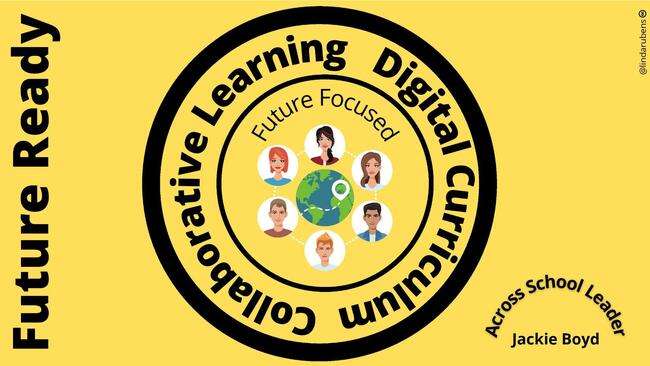

https://www.youtube.com/watch?v=mG5xUN3oiKk&ab_channel=MinecraftEducation
Learners will explore Newton’s Laws to design and launch a rocket, use code to navigate the Orion space capsule, and work as a team to build a survival base on the moon – meeting scientists along the way. Take on this lunar adventure with free educator resources aligned to NSTA standards and created in partnership with NASA and the Challenger Center.
https://education.minecraft.net/en-us/discover/artemis-missions
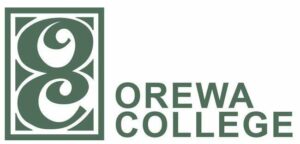
Spotlight on Learning – Ōrewa College – Josh Pinho
With Year 7&8 Classrooms here at Ōrewa College, in line with our school-wide goals around Independent Learning, and the New Zealand Curriculum Achievement Objectives around Digital Literacy, we have pioneered an initiative that utilises the Google Sites tool for students to develop their own ePortfolio.
The ePortfolio is a simple concept with an easy-to-read interface:
- A home page
This page features a student’s Pepeha/Mihi and any relevant information they wish to include
- A page for each curriculum area
This page then features two subpages: Rubrics and Published Work
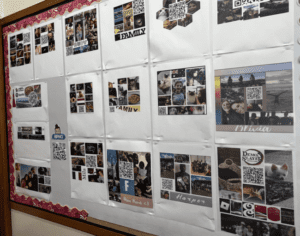 Home Pages
Home Pages
The home page establishes the student as they are for anyone new visiting their space. A “first impression”. In my classroom, I have had students digitally create a collage of photos representing them, including a QR code that directs anyone who scans it straight to their webpage. These are displayed on my classroom wall. This way a parent, member of staff, or other visitors can see the student’s work and working level at any given time, live.
Curriculum Pages
The curriculum area pages allow this live view into the student’s world. Students are able to take digital copies of their curriculum rubrics from their teacher (in our case, from the Google Classroom portal) and upload these to their respective web pages. They are in a Google Doc format, so can be edited by the student at any time to reflect their ongoing progress.
![]()
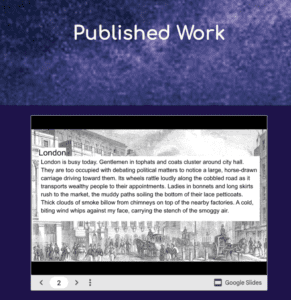 This, in conjunction with published work uploaded to the tab of the same title, can be used to provide students accountability for their own learning journey. During a student-led conference, a student can navigate their ePortfolio with their parents and teachers, while they discuss their curriculum
This, in conjunction with published work uploaded to the tab of the same title, can be used to provide students accountability for their own learning journey. During a student-led conference, a student can navigate their ePortfolio with their parents and teachers, while they discuss their curriculum
levels; where they currently are, and what their next steps are while referring to direct evidence of their current achievement via the published work.
Teachers are able to keep a database of weblinks so that they can visit and conference with students about their work and progress as frequently as required.
Digital Literacy Skills
The digital literacy skills explored in this are vast. Students develop the ability to navigate all areas of the Google Suite, as they create, publish, and live edit classwork that they have embedded via Google Sites. As my students have come to find, the more they utilise the ePortfolio, the more comfortable and confident they become with experimentation on its layout and formatting in a digital scape, and therefore are able to concurrently adjust their own progress via their Digital Literacy rubric; development and achievement via recording their own development and achievement!

The Future
As with any computational exploration, this process will be one of experimentation, collaboration, de-bugging and prototyping. It is my goal to be able to lead professional development on this concept with colleagues across all year levels, as I understand that these skills while native to many of our ākonga, may be unfamiliar landscapes to many kaiako. However, they are skills that I hope, once shared in an approachable, user-friendly manner, are able to significantly improve the way we unpack and explore student progress and development moving forward.

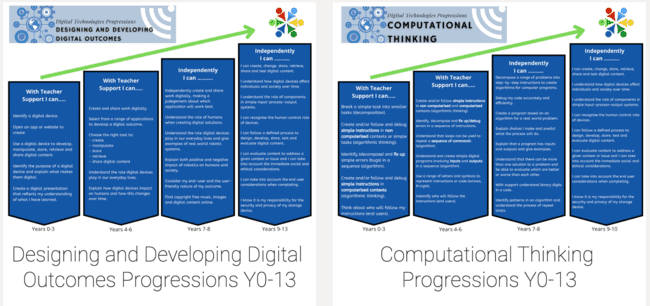
Computational Thinking Digital Progressions
Designing and Developing Digital Outcomes Digital Progressions

Oa te maaka – Or-a teh marrk-ah
Gone too far (Literally “Over the mark”)
Mate, that’s oa te maaka / Friend, you’ve gone too far
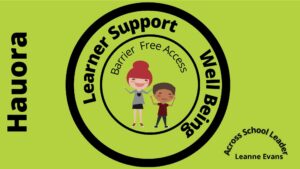
Focus on Dyslexia
A presentation by Louse Still –
Teaching Assistant at Orewa College, Learning Support Centre
- What is dyslexia is and how it affects learning
- Risk factors and protective factors
- Identifying indicators and characteristics at different developmental stages
- Early identification and schoolwide systems to facilitate this
- Accommodations and modifications
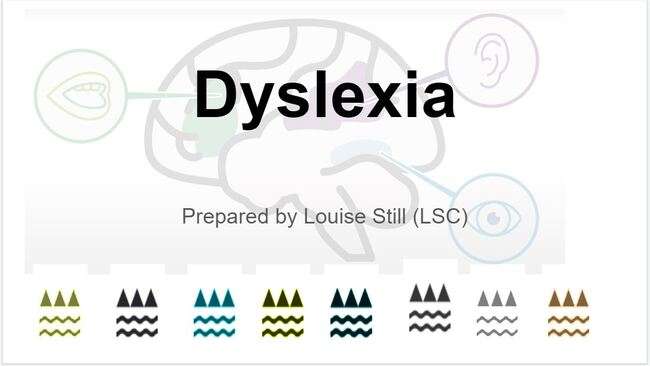
Click on the link for the presentation:
Dyslexia Prepared by Louise Still Orewa College
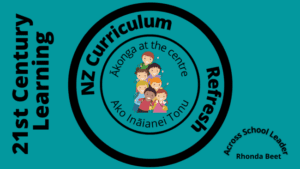
Aotearoa New Zealand is on a journey to ensure that all ākonga in our schools and kura learn how our histories have shaped our present day lives. The final Aotearoa New Zealand’s histories curriculum is now in our schools and ready for teaching from. The curriculum is designed to support ākonga to be critical thinkers and understand our past, i9n order to make sense of the present.

Below are a series of links to help you with your teaching of Aotearoa Histories.
Use these curiosity cards to spark student inquiry about Aotearoa New Zealand’s rich bicultural heritage. Explore themes related to the He Tohu documents and exhibition, and Tuia — Encounters 250 (Tuia 250).
This Tūhura collection explores the context of Whakapapa me te Whanaungatanga through the theme of where we came from.
Tūhura: Where we came from Yrs 1-3 Google slides
Whakapapa me te Whanaunatanga
Tūhura: Migration and settlement stories Google Slides Years 4-6
Not just history – explore geography, the animal kingdom, find the ‘word of the day’
Britannica School library Years 1-6
Britannica Middle School Library
Links to the Curriculum and a number of related resources
Aotearoa Histories Curriculum and resources
Aotearoa Histories Show (Do watch first as not all episodes may be appropriate for your level)
School Kit
https://www.schoolkit.co.nz/aotearoa-nz-histories
Awa Stories is a two-part storytelling project on 10 Auckland residents’ connection to their awa and their first experiences with wai/vai/water.
Orewa Beach Histories website – has links to stories and information about the Orewa/Waiwera Area
The Hahana Channel: https://www.youtube.com/channel/UCB_bLWGTTgnNIQcnXqvd-ww/featured
Four Hahana videos that are particularly relevant to the history of land in Aotearoa, including a Māori perspective of the importance of land:
Why the Māori language is important to our people and the country.
https://www.youtube.com/watch?v=tzB9857wKP0
The Treaty of Waitangi explained by a ten year old.
https://www.youtube.com/watch?v=-JqCcugWmsU
Why our whenua or land is important to us
https://www.youtube.com/watch?v=HN8Zr7JIBbM
Matariki
https://www.youtube.com/watch?v=MBTVcvv3iE8
Auckland Libraries Kura database: Search Auckland Libraries Heritage Collections
Link to searching Auckland Libraries Local History Guide: https://www.aucklandlibraries.govt.nz/Pages/research-local-history.aspx
Auckland Libraries Heritage blog: Unique collections and resources from Auckland Libraries Research and Heritage Centres
Unique collections and resources from Auckland https://heritageetal.blogspot.com/
Auckland Libraries YouTube channel: Ngako: The Collections Talk is a documentary film series that explores taonga held in theAuckland Libraries Heritage Collections and Auckland Council Archives.
Journey with narrators who illustrate how documentary heritage collections help us understand our past, our present and show us potential paths into our future.
https://www.youtube.com/user/aucklandlibraries
Any other questions about library resources you are welcome to contact Erica: [email protected]
Links to the Poutama Pounamu site: Teacher PD to examine your own beliefs/ predjudices
Kete 1: https://poutamapounamu.org.nz/elearning/pp-2022/module-1/kete-1?t=a&v=2793&m=20103&u=26604&i=19109
Kete 2: https://poutamapounamu.org.nz/elearning/pp-2022/module-1/kete-2?t=a&v=2793&m=20103&u=26604&i=19109
Kete 3: https://poutamapounamu.org.nz/elearning/pp-2022/module-1/kete-3?t=a&v=2793&m=20103&u=26604&i=19109
The websites below have a wealth of historical images that can be easily searched.
Kāhui Ako Hui Dates – Term One 2023
30th March – Orewa Beach 10am – ASL and WSL Orewa College 3.30pm

